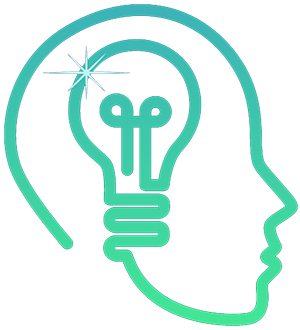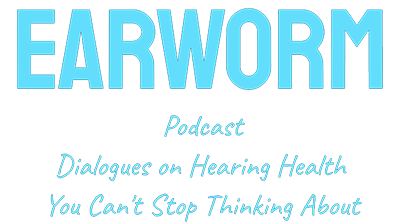Welcome to the EarWorm Podcast!
Episodes:
Episode 8: It’s Time to Educate Women about the Risks of Cytomegalovirus (CMV) During Pregnancy
Featuring Megan Nix, author of Remedies for Sorrow: An Extraordinary Child, a Secret Kept from Pregnant Women, and a Mother’s Pursuit of the Truth, published by Doubleday, 2023
Megan Nix is the author of Remedies for Sorrow, an investigative memoir published by Doubleday in 2023. Remedies for Sorrow was a PEOPLE Magazine Best Book of 2023 and an Amazon Editor's Pick in Best Biographies and Memoirs. Megan's work has appeared in The New York Times, The Boston Globe, The Washington Post, The Denver Post, and elsewhere. She is a mother of five (the second of whom was born deaf due to congenital CMV), and she divides her time between Colorado and Alaska where her husband is a fisherman.
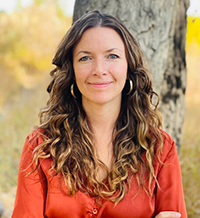
Summary: Pregnant women are commonly educated about a variety of ways they should take care of themselves in order to have a healthy pregnancy and a healthy baby. Some of the most widely known precautions women are advised about during pregnancy are actually quite rare while one of the greatest risks to the health of a developing fetus remains largely undisclosed to women, cytomegalovirus or CMV which is the leading cause of birth defects. The fact that CMV is left out of most conversations health care providers have with pregnant women is especially surprising given that there are relatively simple things pregnant women can do to significantly reduce the risk of their baby contracting it during pregnancy. CMV is a disease infants can be tested for at birth and, if they are found to have it, there is a medication that can reduce, if not prevent altogether, the potential profound effects CMV can have on a child’s development. And yet, this testing is not done as a matter of standard practice either. In this episode of EarWorm we will be talking with author, Megan Nix who is the mother of five children, one of whom was born with CMV and who, as a result, is profoundly deaf. We will discuss the importance of preventing CMV, testing for CMV at birth and treating CMV in a timely fashion to prevent the negative effects of the virus on a child’s development. Host: William Eiserman, Ph.D.
Episode 7: Family-to-Family Support as a key resource when empowering families with children who are deaf or hard of hearing to become informed decision makers
Featuring Janet DesGeorges, Executive Director of Hands & Voices
Janet DesGeorges lives in Boulder, Colorado with her husband, Joe and is mom to three daughters, including Sara, who is deaf/hard of hearing. Janet is a co-founder and Executive Director of Hands & Voices Headquarters, a non-profit parent support and advocacy organization for families who have children who are hard of hearing/deaf. Janet is recognized as a national parent leader and has presented worldwide about the experiences of families as they journey through life with a child with deafness or hearing loss. She has authored a number papers, chapters and practical tools that aim to empower families as informed decision makers for their children and has been the principal investigator of several federal grants that help to support the work of Hands and Voices.
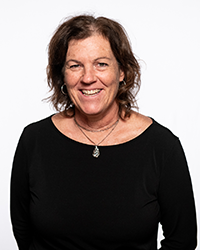
Summary: The joy of welcoming a new child can be mixed with surprise and various emotions for families learning that their child is deaf or hard of hearing. Suddenly faced with understanding their child's needs and finding ways to support their child’s success, these families are fortunately not alone. A range of dedicated professionals, including audiologists, healthcare providers, teachers of the deaf, speech-language pathologists, and early intervention specialists are ready to support, assist and educate. Each offers unique and crucial support. Additionally, the value of parent-to-parent or family to family support is immense, providing not just emotional support to one another but also practical information and guidance and real-life examples of successful approaches to nurturing the growth and development of deaf or hard-of-hearing children. In this episode of Earworm, we delve into the various aspects of family-to-family support and explore how it can significantly benefit families with deaf or hard-of-hearing children, emphasizing the importance of having easy access to this valuable resource early on in the process. Host: William Eiserman, Ph.D.
Episode 6: How will we communicate with our child? Supporting families as they face key questions when their child is diagnosed as deaf or hard of hearing
Featuring Amy Spencer, MS CCC/SLP, LSLS, TOD
Amy Spencer is a speech-language pathologist and coordinator of early intervention and family services at the Maine Educational Center for the Deaf and Hard of Hearing. She is involved with the Maine Newborn Hearing Screening Advisory Board and the Maine Interagency Coordinating Council. Amy actively participates in Earliest Interactions Maine, a program supporting families from hearing screening to early intervention, funded by the Health Resource and Services Administration (HRSA). Her expertise in language and communication development was honed through Gallaudet University's Infant Toddler Family Leadership and Collaboration Certificate Program.
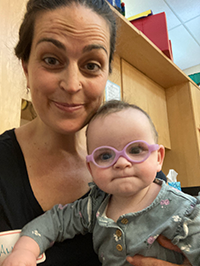
Summary: When a child is diagnosed as deaf or hard of hearing, families suddenly face an unexpected and often challenging situation. They have to start navigating a flood of information and start making crucial decisions about how they will be communicating with their child. Although these families often have access to qualified experts for guidance through this process, the support of primary care providers, child care providers, extended family, and friends is also vital. These supporters can be especially helpful to families if they have at least some understanding of the decisions the family is facing and the importance of the family being supported in making choices that seem to be best for their specific child and family at that time. In this episode of EarWorm, we'll explore the critical decisions these families face in the early stages and discuss how others can provide meaningful support. Host: William Eiserman, Ph.D.
Episode 5: The Potential of Preventing the Most Common Non-Genetic Cause of Hearing Loss with a Vaccine
Featuring Lori Panther, MD
Dr. Lori Panther who is the vice president of clinical development infectious diseases at Moderna where she leads the CMV vaccine development program. Prior to joining Moderna, she was an Assistant Professor of Medicine at Harvard Medical School and an infectious diseases specialist at Beth Israel Deaconess Medical Center in Boston.
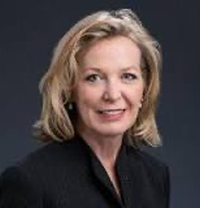
Summary: Approximately 40% of early childhood hearing loss and deafness can be attributed to a virus known as cytomegalovirus, usually referred to as CMV. If a pregnant individual contracts CMV, it can be transmitted to the fetus in-utero. Approximately 1 out of every 200 babies is born with CMV of which 90% will present as asymptomatic and will likely go unidentified. Of those it is estimated that 10-15% will experience hearing loss which may be present at birth or develop later in life. CMV is the most common non-genetic cause of hearing loss. In this episode of EarWorm, we will be talking about ways to mitigate the effects of CMV in the early childhood population, with a special focus on a new vaccine that is under investigation. Host: William Eiserman, Ph.D.
Episode 4: New Frontiers in Universal Hearing Screening: Genetic Screening
Featuring Eliot Shearer, MD
Dr. Eliot Shearer is an Assistant Professor of Otolaryngology, Head and Neck Surgery at Harvard Medical School. Dr. Shearer is a Pediatric Otolaryngologist at Boston Children's Hospital where he cares for children with a wide range of ear, nose, and throat disorders. He has a special interest in the surgical management of pediatric ear disorders, including hearing loss. Dr. Shearer is internationally recognized for his work in developing a new genetic testing platform for the diagnosis of hearing loss and has written many research articles and several book chapters on the subject. Dr. Shearer also studies ways to improve newborn hearing screening tests using technologies and ways to improve outcomes for children with cochlear implants.
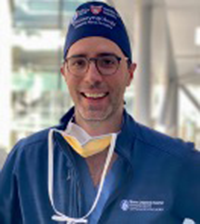
Summary: The newborn hearing screening system known as the Early Hearing Detection and Intervention or EHDI system is lauded as one of the most significant public health achievements of that last several decades. Approximately 3 in 1000 children are identified with a permanent hearing loss as a result of newborn screening. Despite the significance of this programmatic achievement it is estimated that the number of children with permanent hearing loss doubles in a few short years following the newborn period. Promising Methods now exist that would allow us to identify many of these children who will develop a hearing loss subsequent to the newborn period. During this episode of EarWorm, we will discuss how the existing newborn hearing screening protocol could be expanded and potentially identify children who may be among those who could develop hearing loss in subsequent months or years after the newborn period. Host: William Eiserman, Ph.D.
Episode 3: Diagnosing Why? The importance of knowing the cause of a child's hearing loss
Featuring Eliot Shearer, MD
Dr. Eliot Shearer is an Assistant Professor of Otolaryngology, Head and Neck Surgery at Harvard Medical School. Dr. Shearer is a Pediatric Otolaryngologist at Boston Children's Hospital where he cares for children with a wide range of ear, nose, and throat disorders. He has a special interest in the surgical management of pediatric ear disorders, including hearing loss. Dr. Shearer is internationally recognized for his work in developing a new genetic testing platform for the diagnosis of hearing loss and has written many research articles and several book chapters on the subject. Dr. Shearer also studies ways to improve newborn hearing screening tests using technologies and ways to improve outcomes for children with cochlear implants.

Summary: Increased availability of quality early hearing screening and diagnostic services over the last several decade has been revolutionary. With an early identification of hearing loss parents are able to make important decisions about how to ensure their child will have access to language, one way or another, so that they can thrive in all areas of development. Current technology is also making it increasingly easier to determine the cause of a hearing loss. When the cause of a hearing loss is able to be determined, it can sometimes help to predict the stability of the current hearing status, whether changes in hearing are likely to occur in the future, as well as to anticipate emerging concern in other areas of health or development. Host: William Eiserman, Ph.D.
Episode 2: Newborn Screening Isn't Enough: A parent's perspective on late identified hearing loss
Featuring Valerie Abbott
Valerie James Abbott is the parent of a child with late identified hearing loss and is an award-winning author, a parent champion for early hearing detection and intervention, and co-founder of the national pediatric Late Onset Hearing Loss Awareness Campaign. She has become a popular guest speaker at conferences, webinars, and universities - shining a spotlight on postnatal hearing loss and the impact of late-identification on early childhood development through the lens of her own family's journey. Valerie is the past chair of the Virginia EHDI Advisory Committee, and past board member of Virginia Hands and Voices and the Henrico Area Mental Health and Developmental Services Board (CSB). Valerie currently works for the Infant & Toddler Connection of Virginia (Part C), serving families of children with developmental delays and disabilities as a certified early intervention case manager.
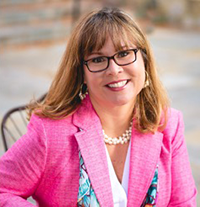
Summary: We all make assumptions as we navigate various challenges in life. Many of those well tested assumptions allow us to function very efficiently but sometimes our assumptions may be incorrect. In this episode we will be talking about one family’s experience that illustrates this point in the context of a young child’s development that took an unexpected and unnoticed turn. It is a story of a child who passed all of her newborn screenings including the hearing screening. But some time later, her hearing status changed without her parents or health care provider realizing it. Host: William Eiserman, Ph.D.
Episode 1: Newborn Screening Isn’t Enough: Monitoring Hearing Status Throughout Early Childhood
Featuring Dylan Chan, MD
Dr. Dylan Chan is an Associate Professor and Director of the Children’s Communication Center (CCC) in the Department of Otolaryngology – Head and Neck Surgery at the University of California, San Francisco. He received his PhD in Auditory Neuroscience from the Rockefeller University and his MD from Weill Medical College of Cornell University. Dr. Chan completed his ONHS residency from Stanford University, followed by a Pediatric Otolaryngology fellowship at Seattle Children’s Hospital.
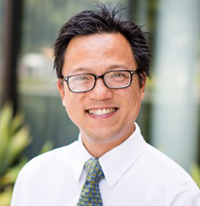
Summary: During the well child visits that start within the first several weeks after a baby is born, the pediatrician or other health care provider begins to monitor a number of health and development concerns, one of which is to check the child’s newborn hearing screening result. If a newborn doesn't pass a hearing screening conducted before hospital discharge, or one performed within the first few weeks of life, then referral for audiological evaluation is the next needed step. In most instances, children pass the newborn hearing screening. With approximately 98% of all infants in the US now receiving what is considered universal newborn hearing screening, this provides parents and health care providers an important initial data point on the child’s hearing status. In this episode of EarWorm we will be talking about the ways in which pediatricians, other health care providers and actually everyone in the life of a child, can and should continue to monitor the hearing status of children throughout the early childhood period, even if the child passed the newborn hearing screening. Host: William Eiserman, Ph.D.

